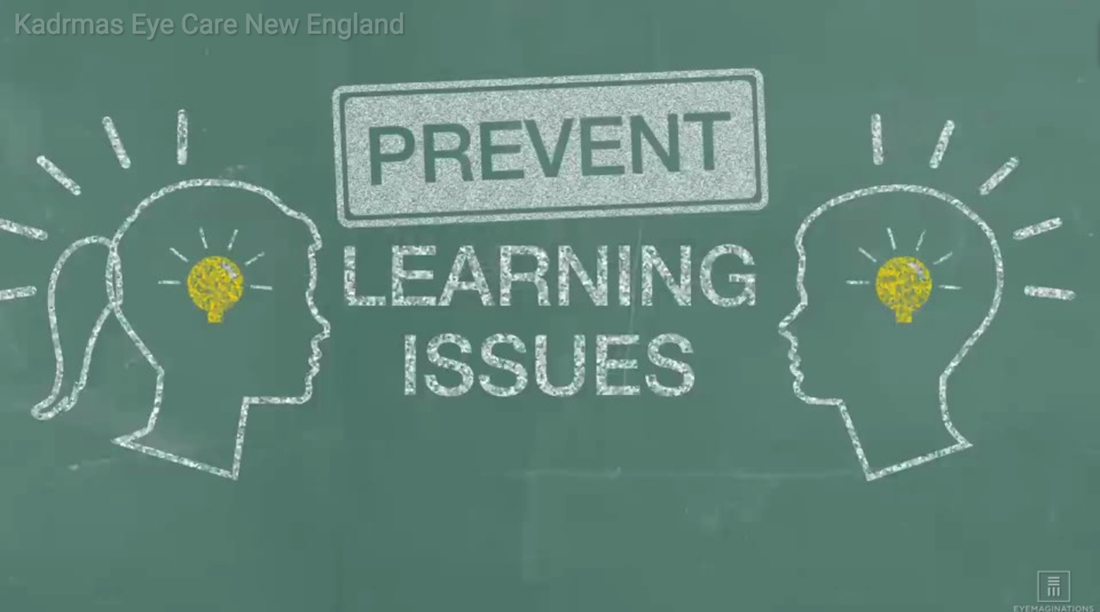Massachusetts School Requirements for Children’s Vision
Massachusetts requires annual vision screening for all school-aged children, starting at the preschool level. The Massachusetts Department of Public Health has set vision screening protocols for children in preschool through grade 12, and children enrolled in public school must have vision screening within 12 months of the start of the school year.
According to PreventBlindness.org, the role of vision screenings is to:
Teachers, nurses, physicians, optometrists, or others approved by the Massachusetts Department of Public Health can perform the Massachusetts Vision Test (or similar approved screening method). Each child’s vision screening results are recorded. For children who are thought to have or diagnosed with vision problems or neurodevelopmental delay, special requirements such as a comprehensive eye examination by an ophthalmologist or optometrist and report are required. For additional information, visit Prevent Blindness’s Massachusetts School Requirements for Children’s Vision. For questions or specific information, you can always contact your child’s school and / or pediatrician with questions about vision screening for your child, necessary documentation, support, and the like. Routine Comprehensive Eye Examinations for Children
Unlike vision screening, a comprehensive eye examination can only be performed by an eye doctor (ophthalmologist or optometrist) and is done to evaluate the eye health / function and vision. Early detection and treatment of eye problems and diseases can help to ensure a lifetime of good vision for your child.
The American Academy of Ophthalmology recommends the following schedule for routine comprehensive eye routines for children:
To learn more about routine eye examinations for children, watch the following videos: When to Seek a Direct Referral to an Eye Doctor for Your Child
Vision Coverage for Children
PreventBlindness.org recommends that children at high risk of eye disease and vision disorders should “bypass screening and be referred directly to an eye care professional” for a comprehensive eye examination. If your child meets any of the following criteria, he or she should see an eye ophthalmologist or optometrist:
If your child needs an appointment with an eye doctor to examine his or her eyes and vision, please call our office (508-746-8600) to schedule a complete eye examination with one of our ophthalmologists or optometrists. Vision Coverage for Children
Ophthalmologists are medical doctors (MDs) and are typically covered by medical / health insurance, whereas optometrists are doctors of optometry (ODs) and are typically covered by vision insurance. The Affordable Care Act (ACA), also know as Obamacare, requires all plans offered in the marketplace to include vision coverage for children as an essential health benefit. Qualified health plans cover basic services for children, including annual examinations, glasses (lenses and frames), and contact lenses instead of glasses. To learn more insurance coverage for children and for your child specifically, visit or contact:
ContactWe’ve covered a lot of information on vision screening and comprehensive eye examinations for children. As you prepare your child to go back to school this year, visit Prevent Blindness America’s ‘Put Children on the Path to a Successful School Year’ webpage for additional insights and tips. And if you want to get your children involved, help him or her become an Eye Spy, an eye health and safety educational program for students, parents, and teachers offered by Prevent Blindness America.
While your child’s eye health and vision is vitally important to his or her quality of life and development, your child’s eye safety is equally important. In the following blog posts, we’ll cover protecting your child’s eyes from both the sun and injury. In the meantime, if you have questions about your child’s eye health / vision or scheduling an eye examination for your child, please don’t hesitate to contact us. Comments are closed.
|
EYE HEALTH BLOGCategories
All
Archives
July 2024
|
|
Kadrmas Eye Care New England
55 Commerce Way, Plymouth, MA 02360
14 Tobey Road, Wareham, MA 02571 133 Falmouth Road (Rt 28), Mashpee, MA 02649 |
Phone Number:
1-508-746-8600 Hours: Monday through Friday — 8 AM – 4:30 PM |


 RSS Feed
RSS Feed
